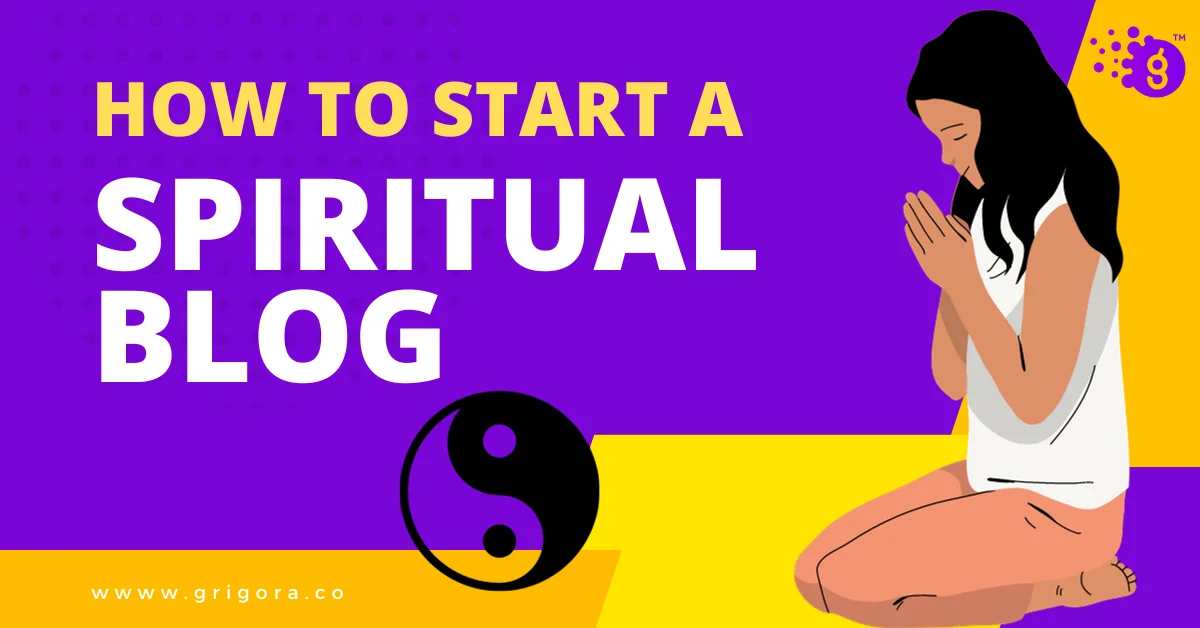Introduction
The Rise of Spiritual Blogs
In recent years, we have witnessed a significant rise in spiritual blogs. These platforms have become a sanctuary for many, offering a space to explore and share spiritual journeys, insights, and experiences. The surge in spiritual blogs can be attributed to a growing interest in spirituality, where individuals are seeking deeper connections and a higher purpose in life.
Why Share Your Spiritual Journey Online
Sharing your spiritual journey online can be a transformative experience, not just for you but also for your readers. It allows for a deeper connection with a community of like-minded individuals. Moreover, articulating your experiences and reflections can often offer a fresh perspective and foster personal growth. Sharing online also opens up avenues to receive guidance, feedback, and support from others who are on a similar path, creating a nurturing space for spiritual development.
"Sharing your journey can be a light to someone else's path."
Understanding the Purpose of Your Spiritual Blog
Personal Growth vs. Guiding Others
When starting a spiritual blog, it is essential to clarify the purpose behind it. You might be inclined towards personal growth, where the blog serves as a journal for your spiritual journey. On the other hand, your focus might be on guiding others by sharing insights and teachings that can help them on their paths. It is not uncommon for a blog to serve both purposes, fostering a community where everyone grows together.
Sharing Experiences vs. Teaching Spiritual Practices
Your blog can be a platform where you share personal experiences, stories, and reflections, helping others to find resonance and perhaps learn from your journey. Alternatively, it can be a space dedicated to teaching spiritual practices such as meditation, yoga, or mindfulness, offering guidance and techniques to help others enhance their spiritual well-being. Determining the core focus of your blog in this aspect will guide the kind of content you create and share.
Choosing Your Spiritual Niche
In the vast and diverse field of spirituality, finding your niche is like finding your unique voice that resonates with a specific group of people. Let's delve into the different niches you can explore:
Meditation and Mindfulness
This niche focuses on the practices that promote relaxation, mental clarity, and presence. You can share guided meditations, tips on cultivating mindfulness, and the benefits of these practices.
Yoga and Physical Well-being
If your spiritual journey involves physical practices like yoga, your blog can become a space to share yoga sequences, the philosophy behind yoga, and how it contributes to spiritual growth.
Religious Teachings and Interpretations
For those drawn to the teachings of a particular religion, your blog can offer interpretations of sacred texts, discussions on the principles of the religion, and how to live a life aligned with those principles.
Energy Healing and Chakras
This niche encompasses a range of practices aimed at healing and balancing the body's energy systems. You can share insights on different healing modalities, guides on chakra balancing, and personal experiences with energy healing.
Astrology and Tarot
If the mystical world of astrology and tarot cards fascinate you, your blog can be a space to share daily or weekly forecasts, tarot readings, and educational content on understanding astrology and tarot.
"Choose a niche not just based on popularity but where your passion and knowledge resonate the most."
Setting Up Your Spiritual Blog
Embarking on the journey to start your spiritual blog involves a few technical steps to ensure your blog is set up correctly. Here, we will discuss the initial steps you need to take:
1. Domain Name and Hosting
Choosing a Reflective and Memorable Domain Name
Your domain name is essentially the address where people can find your blog online. It should be reflective of the content you plan to share and easy to remember. Consider using words that resonate with your spiritual niche.
Selecting Reliable Hosting Services
A hosting service is where your blog's files will be stored. It is crucial to choose a reliable hosting service to ensure your blog remains accessible and runs smoothly. Research different hosting providers, considering their reliability, customer service, and the features they offer.
2. Blog Design and Layout
Picking a Calm and Inviting Theme
The design of your blog should invite readers into a space of calm and spirituality. Choose a theme that reflects the essence of your spiritual journey, with colors and fonts that are soothing and harmonious.
Ensuring User-friendly Navigation
Your blog should be easy to navigate, with a well-organized menu and a search function to help readers find the content they are interested in easily. Consider including categories based on your different spiritual niches to streamline navigation.
3. Essential Pages to Include
About Page: Sharing Your Spiritual Journey
An about page is a space where you can share your spiritual journey and the mission of your blog. It helps in building a connection with your readers.
Contact Page: Building a Community
A contact page facilitates communication with your readers, allowing them to reach out to you with questions, comments, or collaboration proposals.
Resources Page: Offering Tools and Recommendations
On the resources page, you can share tools, books, and other resources that have aided you in your spiritual journey, helping your readers in their paths.
"In the process of setting up your blog, remain true to your spiritual journey, reflecting it in every aspect of the blog, from the domain name to the design."
Creating Engaging and Authentic Content
Creating content is the heart of your spiritual blog. It is where you share your insights, experiences, and knowledge with your readers. Let's delve into how you can create engaging and authentic content:
Sharing Personal Experiences and Stories
Sharing personal anecdotes and stories can create a deep connection with your readers. It not only humanizes you but also provides a firsthand account of spiritual experiences, which can be both enlightening and inspiring.
Offering Meditations or Spiritual Exercises
You can offer guided meditations or spiritual exercises to help your readers in their spiritual journey. These can be in the form of blog posts, audio files, or even video content.
Writing Book Reviews or Sharing Inspirational Quotes
Sharing reviews of spiritual books or daily inspirational quotes can be a great way to engage your readers. It can provide them with resources for their spiritual growth and daily doses of inspiration.
Staying Authentic and Avoiding Dogma
While sharing knowledge, it is essential to stay authentic and avoid dogmatic views. Encourage open discussions and respect diverse perspectives to foster a healthy spiritual community.
Engaging with Your Spiritual Community
Building a community around your spiritual blog can be a rewarding experience. It not only helps in growing your blog but also fosters a space where like-minded individuals can connect, share, and grow together. Here is how you can engage with your spiritual community:
Encouraging Comments and Discussions
Encourage your readers to leave comments on your blog posts. Respond to the comments to foster a dialogue and build a community. You can also create discussion forums to facilitate deeper conversations on spiritual topics.
Hosting Online Meditations or Webinars
Hosting online events such as meditations or webinars can be a great way to engage with your audience. It provides a platform for learning and growing together.
Collaborating with Other Spiritual Bloggers
Collaborate with other spiritual bloggers to reach a wider audience. Guest blogging, podcast interviews, and social media collaborations are excellent ways to work together and support each other.
Monetizing Your Spiritual Blog
As your spiritual blog grows, you might consider monetizing it to support your blogging journey. Here are different avenues you can explore to monetize your spiritual blog:
Offering Online Courses or Workshops
Leverage your knowledge and experience to create online courses or workshops. It could be a course on meditation, spiritual awakening, or any other niche topic you specialize in.
Selling Spiritual Products or Books
If you have spiritual products or books, your blog can be an excellent platform to sell them. Ensure to offer products that align with your blog's theme and your audience's interests.
Affiliate Marketing for Spiritual Tools and Resources
Engage in affiliate marketing by promoting spiritual tools and resources that you believe in. It could be books, meditation apps, or yoga accessories. Always disclose your affiliate relationships to your readers to maintain transparency.
Promoting Your Spiritual Blog
Once your blog is set up and running with a library of content, the next step is to promote it to reach a wider audience. Here’s how you can go about it:
Leveraging Social Media Platforms
Utilize platforms like Instagram, Facebook, and Twitter to share your blog posts and connect with a larger audience. Share snippets of your blog, inspirational quotes, or short videos to engage your followers.
Guest Posting on Established Spiritual Websites
Consider writing guest posts for well-established spiritual blogs or websites. It not only helps in reaching a broader audience but also in building valuable backlinks for your blog.
Engaging in Spiritual Forums and Communities
Become an active member of spiritual forums and communities. Share your insights, answer questions, and subtly promote your blog where it adds value.
Staying Consistent and Evolving
Maintaining a blog is a continuous process. Here is how you can stay consistent and allow your blog to evolve over time:
Regularly Updating and Refreshing Content
Ensure to update your blog regularly with fresh content. It could be sharing new experiences, insights, or spiritual teachings. Also, revisit old posts to update them with new information or improved insights.
Seeking Feedback and Making Necessary Changes
Encourage your readers to leave feedback and be open to making necessary changes based on the feedback received. It helps in building a community and improving your blog over time.
Continuing Your Personal Spiritual Growth
Your blog is a reflection of your spiritual journey. Continue your personal spiritual growth to have new experiences and learnings to share on your blog. It keeps the blog vibrant and alive with fresh perspectives.
FAQs
How often should I update my spiritual blog?
Updating your spiritual blog regularly is essential to build and maintain your audience. It is generally recommended to post at least once a week to keep your readers engaged and coming back for more.
Can I integrate meditation audio tracks on my blog?
Yes, integrating meditation audio tracks can be a great addition to your blog. It can enhance the user experience by providing them with valuable resources to aid in their spiritual journey. Make sure to use tracks that you have the rights to, to avoid copyright issues.
How do I handle differing spiritual opinions on my blog?
Handling differing opinions respectfully and constructively is vital. Encourage healthy discussions and be open to diverse perspectives. It can foster a rich and inclusive community on your blog.
What are the ethical considerations when monetizing a spiritual blog?
When monetizing a spiritual blog, it is essential to maintain transparency with your readers and to promote products or services that align with your spiritual values. Always prioritize the well-being and spiritual growth of your readers.
How can I ensure my content remains authentic and genuine?
To ensure authenticity, always write from your personal experience and understanding. Be honest and open with your readers, and avoid exaggerating or misrepresenting facts. Authenticity builds trust and fosters a genuine connection with your audience.
Additional Resources
Top Spiritual Blogs for Inspiration
Mind Body Green: A holistic wellness blog that covers a range of topics including spirituality.
The Chopra Center: Founded by Deepak Chopra, this blog offers a wealth of information on spirituality and well-being.
Tiny Buddha: A blog that shares wisdom quotes and personal stories to help you lead a happier life.
Books on Spiritual Writing
"Writing Down the Bones" by Natalie Goldberg: This book offers great insights into the art of writing from a deeper, more spiritual perspective.
"The Artist's Way" by Julia Cameron: A classic book that guides individuals in nurturing their creative and spiritual self.
"Bird by Bird" by Anne Lamott: Lamott shares her perspective on writing and life, encouraging readers to write with honesty and empathy.
Online Courses on Spiritual Blogging
Coursera: Offers a range of courses on blogging, including how to write spiritual content.
Udemy: Here, you can find courses that cover the technical aspects of setting up a blog, as well as courses on spiritual writing.
MasterClass: Features classes by renowned writers and spiritual teachers, helping you hone your writing skills.
By exploring these resources, aspiring spiritual bloggers can find the guidance and inspiration they need to start a successful blog. It is always beneficial to learn from others who have walked the path before you.
Conclusion
As you reach the end of your guide on starting a spiritual blog, it is time to encapsulate the essence of what readers have learned and to inspire them to take the first step on their blogging journey.
The Impact of Sharing Spiritual Wisdom
Sharing spiritual wisdom through a blog can have a profound impact, not just on the readers but also on you as a writer. It fosters a community of like-minded individuals and becomes a source of inspiration and learning for many.
The Continuous Journey of Spiritual Blogging
Emphasize that spiritual blogging is a continuous journey. It grows and evolves with time, reflecting your personal growth and the deepening of your understanding. Encourage your readers to embark on this fulfilling journey with an open heart and a willing spirit.



